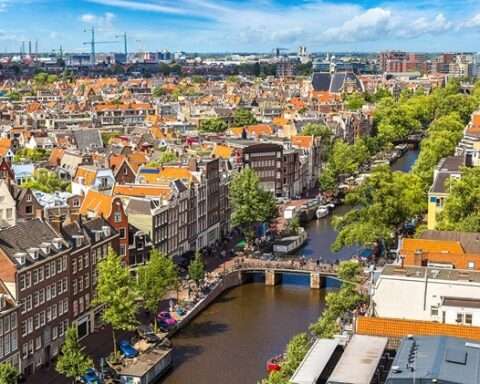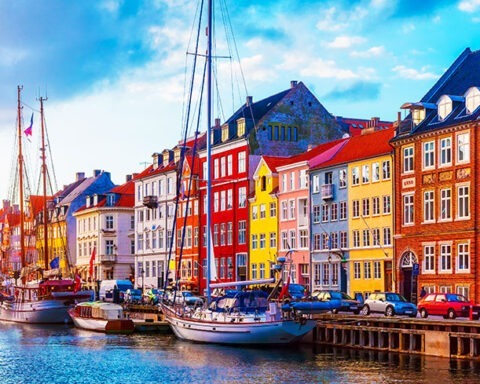This is the result of the modification of seven operational programmes from the European Regional Development Fund (ERDF) and three from the European Social Fund (ESF).
Commissioner for Cohesion and Reforms, Elisa Ferreira said: “REACT-EU is crucial for the recovery of the economy following the coronavirus crisis. Spain is doing a tremendous job by mobilising these resources for much needed investments aiming at a rapid, strong and convergent recovery as well as a fair and balanced transition towards a digital and green economy.”
- In Andalusia, €1.64 billion of ERDF and ESF funding will provide working capital to 57,000 small and medium-sized enterprises (SMEs) to mitigate the impact of the discontinuation of business caused by the pandemic. The EU funds will also support energy efficiency, sustainable mobility, and climate change mitigation measures, as well as the use of renewable energy sources. Moreover, investments will be made in the construction and renovation of the health infrastructure and to reinforce publicly funded educational centers and towards incentives to maintain or create new jobs, supporting, in particular, the self-employed;
- In Asturias, €68.2 million from the ERDF will be invested in health services and products in response to the coronavirus pandemic, improving teleworking conditions and digital public services such as e-learning. The funds will also support waste water treatment such as the establishment of sanitation networks or the improvement or construction of treatment plants, as well as the construction and renovation of school infrastructure, with a focus on energy efficiency gains;
- In the Basque country, €278.5 million from the ERDF will support the acquisition of health equipment and medicines, testing and treatment facilities and the increase of bed spaces in health facilities. Moreover the funding will support the transition to a digital economy focusing on the digitalisation of public services, including e-health and e-learning, as well as the transition to a green economy thanks to electric mobility in public transport, improved energy efficiency and use of renewables in public buildings;
- In Cantabria, €79.4 million from the ERDF will support the acquisition of new health products and services, including health equipment and cost of personnel, transition to a digital economy through digitalisation of schools, civil protection services, e-government and SMEs, as well as support to economic sectors most affected by the coronavirus crisis. This support will be made through grants for productive investments focusing on tourism, the industrial sector and commerce. The EU will also support the vocational and professional training system;
- In Castilla – La Mancha, €406 million of ERDF and ESF will reinforce health and social services in the fight of the pandemic through additional supplies of medical equipment and recruitment of new staff as well as digitalisation of public services and education. The additional funding will also help the self-employed to maintain their activity, support students in higher-education vocational training and jobseekers with coaching and skills development opportunities provided by municipalities and non-profit organisations;
- In Castilla y León, €275.5 million of ERDF funding will support improved health infrastructure and the digital transition investing in e-services in schools and public and emergency services. Moreover, around 8,500 companies will receive support in the form of working capital. Finally, the region will receive help in its green transition through the promotion of the circular economy, climate change mitigation and adaptation, and risk prevention and management;
- In Catalonia, €893.3 million of ERDF funding will support the acquisition of health equipment, medicines and testing and treatment facilities to fight the new coronavirus, including the purchase of around 1.2 million tests. The funds will also be invested in supporting the transition to a digital and green economy through soft mobility and cycle paths, as well as the provision of basic infrastructure to citizens such as the construction and renovation of the health infrastructure (primary care and hospitals) and education (primary, secondary and special education);
- In Ceuta, €7 million of ESF funding will support incentives to permanent contracts or turning temporary contracts into permanent, start-ups and vocational education and training programmes combining learning in companies and schools;
- In Melilla, €3.7 million will be invested in the transition towards a digital and green economy through actions to facilitate open data for SMEs and the use of emerging technologies such as Internet of Things, and to adapt digital services for citizens and businesses. The EU will support investments contributing to the transition towards a digital and green economy such as the improvement of the vegetation, the fauna, the protection of grounds for citizen and scientific use. The funds will also be used for investments in infrastructure providing basic services to citizens, which will include a new vocational training centre;
- In La Rioja, €40 million from the ERDF will support investments in medical, pharmaceutical and research material, stimulus to entrepreneurship, reviving sectors such as tourism and culture, improving energy efficiency in public buildings, construction and renovation of the infrastructure for health and education, as well as measures to reduce administrative burden for the benefit of citizens and businesses;
Background
As part of NextGenerationEU, REACT-EU provides a top-up of €47.5 billion (€50.6 billion in current prices) to Cohesion policy programmes over the course of 2021 and 2022. Measures focus on supporting labour market resilience, jobs, SMEs and low-income families, as well as setting future-proof foundations for the green and digital transitions and a sustainable socio-economic recovery in accordance with the REACT-EU objectives and with the 2020 country specific recommendations for the country concerned.
These additional resources should be used for projects that foster crisis repair capacities in the context of the coronavirus pandemic, as well as investments in operations contributing to preparing a green, digital and resilient recovery of the economy.
REACT-EU entered into force on 24 December 2020 and can finance expenditure retroactively from 1 February 2020 until 31 December 2023.






